#Manhattan Design
Explore tagged Tumblr posts
Text
Yes, there’s something about a book.
The Art of MTV - The MTV: Music Television Logo August 1, 1981-February 8, 2010 by Fred Seibert
I've often posted here about the MTV logo, and people keep asking me about it, even all these decades later. At least, people ask about the OG logo that lasted until 2010. It’s true that you can see hundreds of example on the internet, but... there’s just something about a book.
Here's the introduction I wrote for this book of many of my favorite M’s, I think it's adds some (more!) color to the story.
...
The ‘M’ was the star
In a world about to explode with TV channels and noise, it had to be.
By Fred Seibert
My job at MTV: Music Television was to make the ‘M’ the star. The question is, why?
My boss didn’t tell me to do it. My actual job title was Vice President, Program Services. Essentially, I was the original Creative Director and a co-founder. My tasks seemed straightforward: get a logo made, establish the verbal and written vocabulary, and make on-air promotional spots.
Check. Check. Check.
So why did I reject nearly 500 preliminary logo sketches from Manhattan Design? Why did I pick the one you all remember? Why was it so damn important?
Let’s rewind. In 1981, the year we launched, the average American home had just two television channels. Really. In major markets like Los
Angeles or New York, you might get seven primary VHS channels: three national networks and four independents. Most people ignored UHF. In some rural areas or densely packed cities, they had one channel, with reception that was snowy at best. On average, two channels.
But with satellite-distributed cable TV coming fast, the prediction was there would be 100 channels by 1984. One hundred!? Unthinkable. (No one could imagine the 50 million+ YouTube channels we have today.)
In that coming flood of video programming MTV: Music Television wouldn’t even get sampled unless we stood out.
I felt we needed a dominant visual signpost to guide viewers to us. The musicians were important, but they’d come and go. Duran Duran and Pat Benatar might be huge now, but they’d be replaced by Michael Jackson, Nirvana, or the Backstreet Boys.
MTV had to be the constant. The channel itself had to outlast the artists.
To me, it was like the transformation in the ’60s when album covers went from utilitarian to statement pieces. Music alone wasn’t enough—the design, photography, and illustration had to stop you in your tracks. Bob Pittman, my boss, put it perfectly:
“Fred, people don’t buy music. They buy packages.”
The Beatles may have lit the match, but the fire spread fast, and I wanted MTV to burn just as brightly.
What to do?
After hundreds of failed attempts, Manhattan Design walked in with that now-iconic giant ‘M’ with a graffiti-inspired ‘TV’ scrawled over it.
Yes!
My promo mentor Dale Pon had a mantra: “Designs need to dominate the space.”
The ‘M’ did just that—it filled every inch of those old 4x3 TV screens like it owned the room.
From there, my creative partner Alan Goodman and I reached out to young, independent animators around the world. They’d grown up not just with rock’n’roll, but with the album art that gave the music its emotional packaging. We gave them a simple rule: Make sure the ‘M’ is center of attention.
They delivered. Did they ever.
MTV: Music Television bombarded the world with A Flock of Seagulls, The Human League, Michael Jackson, Joan Jett, David Bowie, Snoop Doggy Dogg, Aerosmith, Radiohead, Counting Crows, Sheryl Crow, NSYNC, Britney Spears, Eminem, Linkin Park, Blink-182, Mandy Moore...
Many of those artists are now forgotten, dismissed, or listened to only through the fog of nostalgia. And once MTV dropped “Music Television” for "Jersey Shore," "Ridiculousness," and a gutted version of the logo, something got lost. Visit the MTV Store today—the only T-shirts that sell carry the classic logos designed by Pat Gorman, Frank Olinsky, and Patti Rogoff of Manhattan Design.
The artists came and went.
But MTV: Music Television?
MTV hit the world with more glorious M’s than you could shake a stick at.
3 notes
·
View notes
Text
Compact - Modern Wine Cellar

#compact#manhattan design#manhattan interior design#marble floor#white walls dark cabinets#wine cellar#wine refrigerator
0 notes
Photo

Large Wine Cellar Inspiration for a large mediterranean travertine floor wine cellar remodel with display racks
1 note
·
View note
Text
Compact - Modern Wine Cellar

#compact#manhattan design#manhattan interior design#marble floor#white walls dark cabinets#wine cellar#wine refrigerator
0 notes
Text
Compact - Modern Wine Cellar

#compact#manhattan design#manhattan interior design#marble floor#white walls dark cabinets#wine cellar#wine refrigerator
0 notes
Photo

Compact - Modern Wine Cellar Ideas for a small, contemporary wine cellar renovation with a slate floor
#marble floor#wine refrigerator#compact#wine cellar#manhattan design#manhattan interior design#white walls dark cabinets
0 notes
Photo

Large Wine Cellar Inspiration for a large mediterranean travertine floor wine cellar remodel with display racks
0 notes
Text







The Chrysler Building est. 1930
405 Lexington Ave, Manhattan
In the 1930s, the Chrysler Building stood as a symbol of ambition and sophistication, crowned by the exclusive Cloud Club, an Art Deco retreat for New York's elite financiers and executives. Though the club is long gone, the building endures as a timeless icon of the city's golden era.
#chrysler building#new york#manhattan#1930s style#1930s vintage#aesthetic#vintage#style#beauty#architecture#design#art deco
418 notes
·
View notes
Text
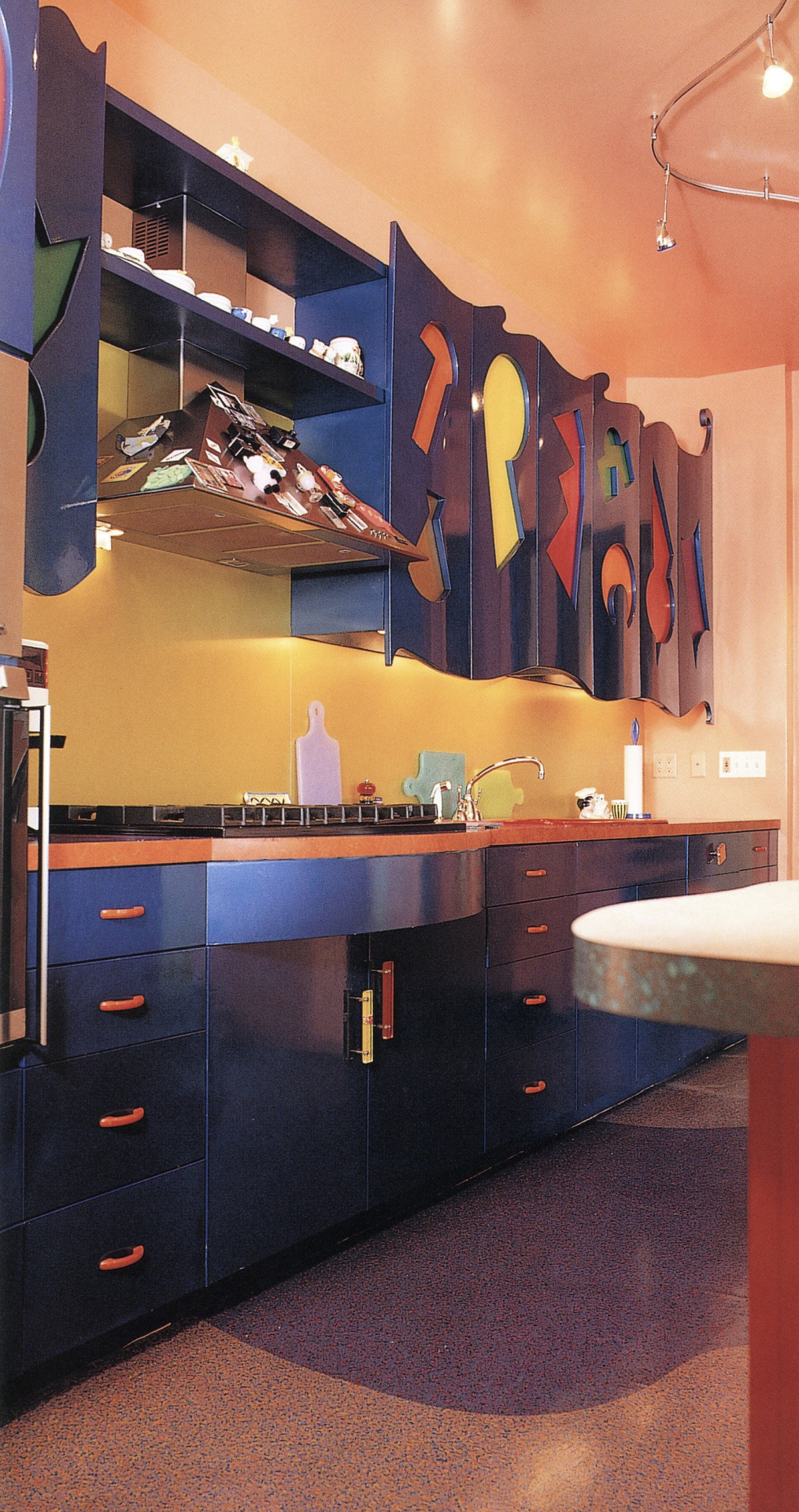



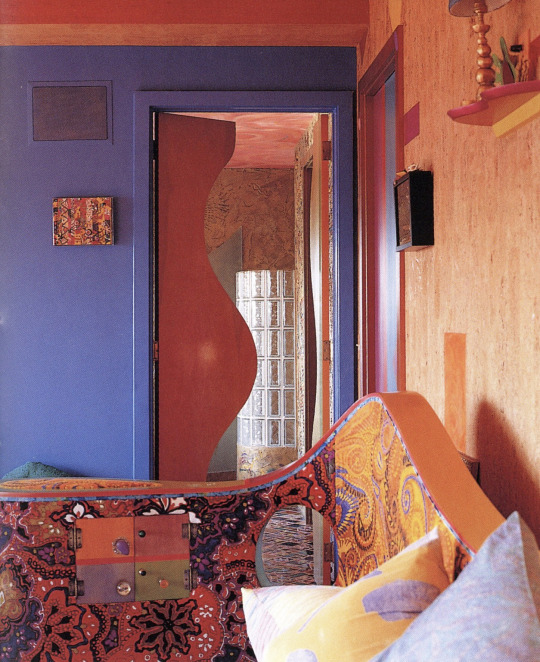
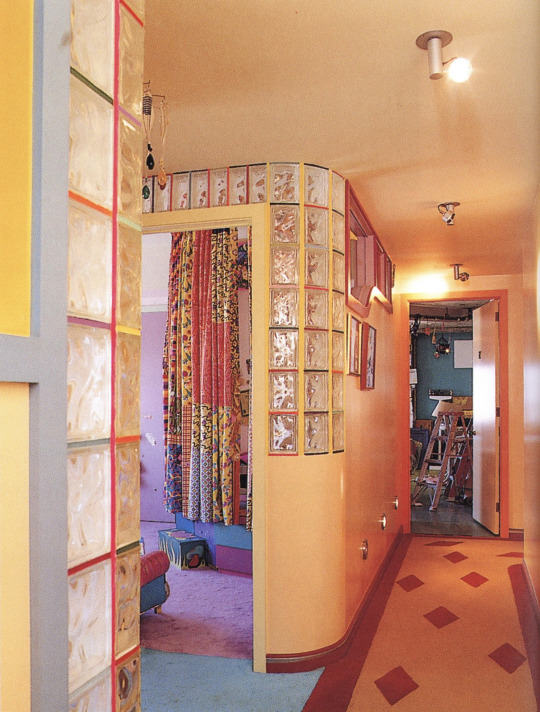
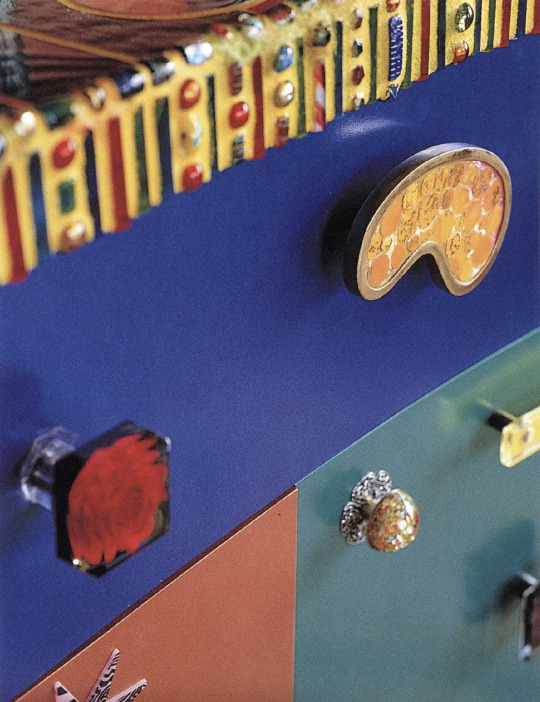

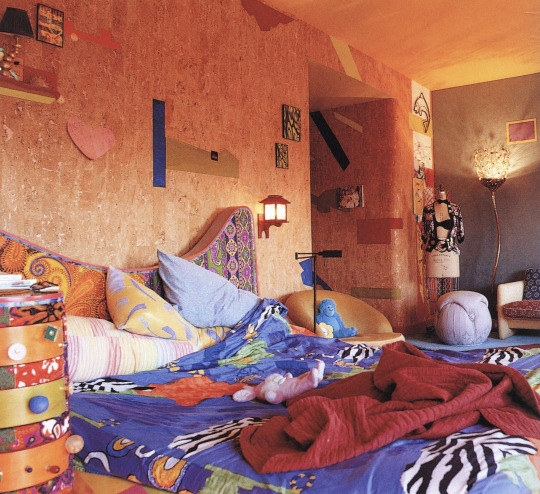
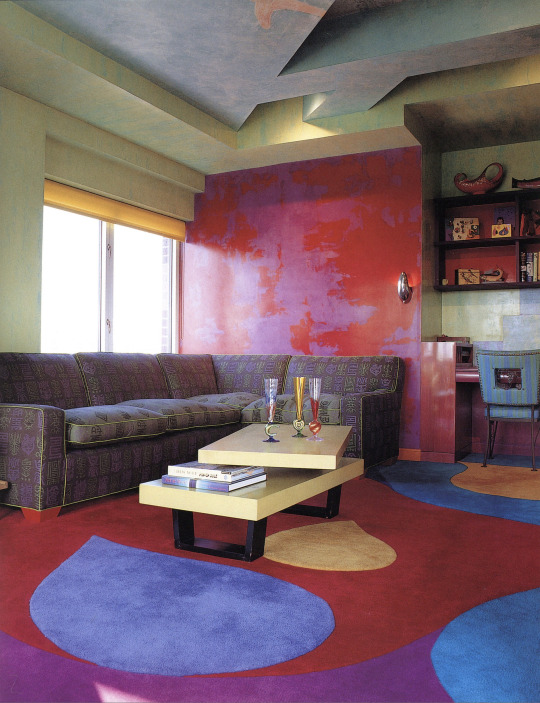
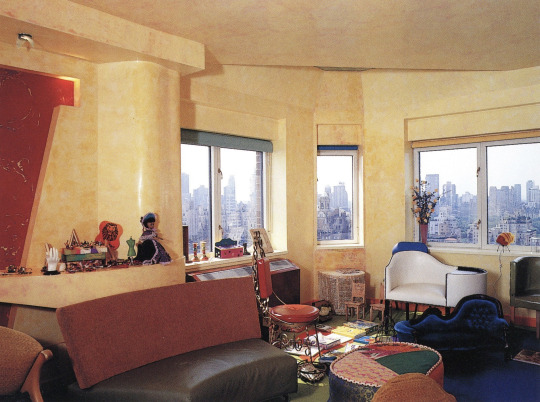

Apartment of Apryl Miller - designed by Apryl Miller and unnamed architect - Manhattan, NY (1990s)
Great example of the wild & wacky 'Whimsicraft' aesthetic popular in the 1990's, with touches of the 'Googie' revival as well.
Scanned from the book, 'Artist Interiors: Creative Spaces, Inspired Living' by Laurie Dickson (2003)
#90s#design#interior design#interiors#architecture#1990s#colorful#pink#googie#whimsicraft#manhattan#apartment#nyc#apryl miller#home design
2K notes
·
View notes
Text

Ethel Merman's apartment, New York City.
Celebrity Homes II, 1981
#vintage#interior design#home#vintage interior#architecture#home decor#style#1980s#living room#80s#Ethel Merman#New York City#Manhattan#apartment#teal#wall color#collection#awards#portrait
157 notes
·
View notes
Text

Textile, "Manhattan," by Clayton Knight, manufactured by Stehli Silks. 1925.
The cityscape is a natural subject for textile design—grid-based, repetitive and boldly geometric—well, at least Manhattan after the skyscraper boom of the 1920s and 30s. … Clayton Knight’s version was part of Stehli Silk’s Americana Prints collection, produced between 1925 and 1927. … “The skyscraper, jazz, and other modern notes of energetic America will be reflected in the designs,” ("Artists Localize Our Silk Designs,"; New York Times, November 1, 1925). The article also declared Knight's Manhattan to be the most successful design of the series, noting that "it is so modern that it suggests a view of all our skyscrapers piled up together, seen from an elevated train rounding a sharp curve."
Text & photo: Smithsonian Cooper-Hewitt National Design Museum
#vintage New York#1920s#Clayton Knight#Stehli Silks#fabrics#fabric design#Manhattan in art#textiles#textile design#silk#1920s New York#Art Deco
256 notes
·
View notes
Text







Modulightor Building, New York City - Paul Rudolph
#Paul Rudolph#architecture#design#building#modern architecture#interiors#minimal#house#house design#modern#modernist#modernity#modernism#cool design#white metal#steel frame construction#modulardesign#tall#form#boxy#townhouse#urban#manhattan#new york city#usa#american architecture#timeless#living room#glass#plants
162 notes
·
View notes
Text

Leftist propaganda trying to move Central Park to the far west
#america#united states#usa#central park#manhattan#new york city#nyc#city planning#urban design#hot take#tumblr humor#geography#maps#satellite images#shitposts#doomer memes#funny#lol#comics#trolls
68 notes
·
View notes
Text

Phoebe Wilkinson, Soloman, 2025
#photography#fine art#surrealism#expressionism#abstract#abstract photography#photooftheday#artists on tumblr#female photographers#my photography#photographers on tumblr#original photography on tumblr#original photographers#architecture#black and white#b&w#b&w photography#surrealist photography#surreal#guggenheim#new york#new york city#nyc#manhattan#shot on iphone#modernism#organic architecture#organic design#black and white photography#photo
124 notes
·
View notes
Text













Kent Avenue penthouse, East River, New York,
Norm Architects
#art#design#architecture#minimalism#luxury#interiors#interior#interiordesign#luxuryhouse#luxury home#penthouse#pool#kent avenue#brooklyn#new york#norm architects#manhattan
136 notes
·
View notes
Text

William A. Clark Residence in Manhattan, New York City,
The mansion was completed in 1911. It was reported that Clark bought a quarry in New Hampshire and built a railroad to transport the stone for the building. He also bought a bronze foundry employing 200 men to manufacture the bronze fittings.
In addition, he imported marble from Italy, oak from Sherwood Forest in England, and parts of old French châteaux for the interior.
The mansion was demolished in 1927 and replaced with a 'luxury' apartment building...
#art#design#architecture#history#luxury lifestyle#style#luxury house#luxury home#mansion#townhouse#new york city#manhattan#willam A. Clark#vintage photography#1900s
272 notes
·
View notes